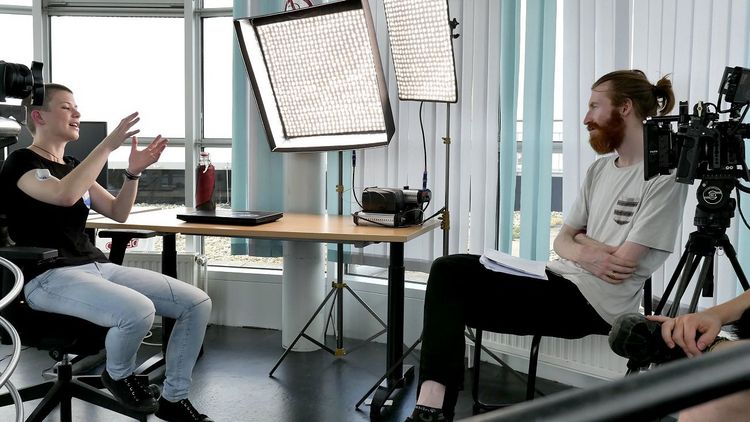Shooting for a documentary in Wilhelmshaven
A well-known glass recipient in the wrong place and wooden drifters brought together Dr. Rosanna Schöneich-Argent of the ICBM research group Geoecology and award-winning filmmaker Steffen Krones. Shooting for parts of a new documentary recently took place in Wilhelmshaven. It was about some scientific aspects of the film project.
An odd experience beyond the polar circle became a key event for Krones: On the rocky shoreline of an uninhabitated and hardly accessible Lofoten Island, he came across an empty beer-bottle, besides several pieces of pastic débris. It was not any kind of a beer bottle since it bore a German label. So, how did this bottle end up on this abandoned rocky shore far away from Germany, and did the nearby plastic pieces cover a similar distance? From then on, these questions kept bothering Krones, as a committed citizen as well as a filmmaker.
Together with a friendly neighbour and engineer, they started to construct GPS drifters in Dresden and tracked their way downstream the Elbe river, even by camera. Thus, Krones tried to find out whether plastic litter drifting down the rivers ends up in the North Sea or even the Northern Polar Sea. During his enquiries on the subject, he encounterd several scientists such as Rosanna Schöneich-Argent, who had been working on the issue of macroplastics pollution in the southern North Sea for her PhD thesis.
Krones‘ documentary is going to depict the causal relations that contribute to marine plastics pollution. It is motivated by the strong desire to eventually terminate the issue. The film will be seen at several festivals next summer, and German public-service TV will broadcast a 45-minute version by the end of 2021.
see also: Flaschenpost aus Dresden [German only]

![[Translate to English:]](/f/5/_processed_/3/2/csm_ICBM-Logo-transparent-_91fe1c6774.png)
